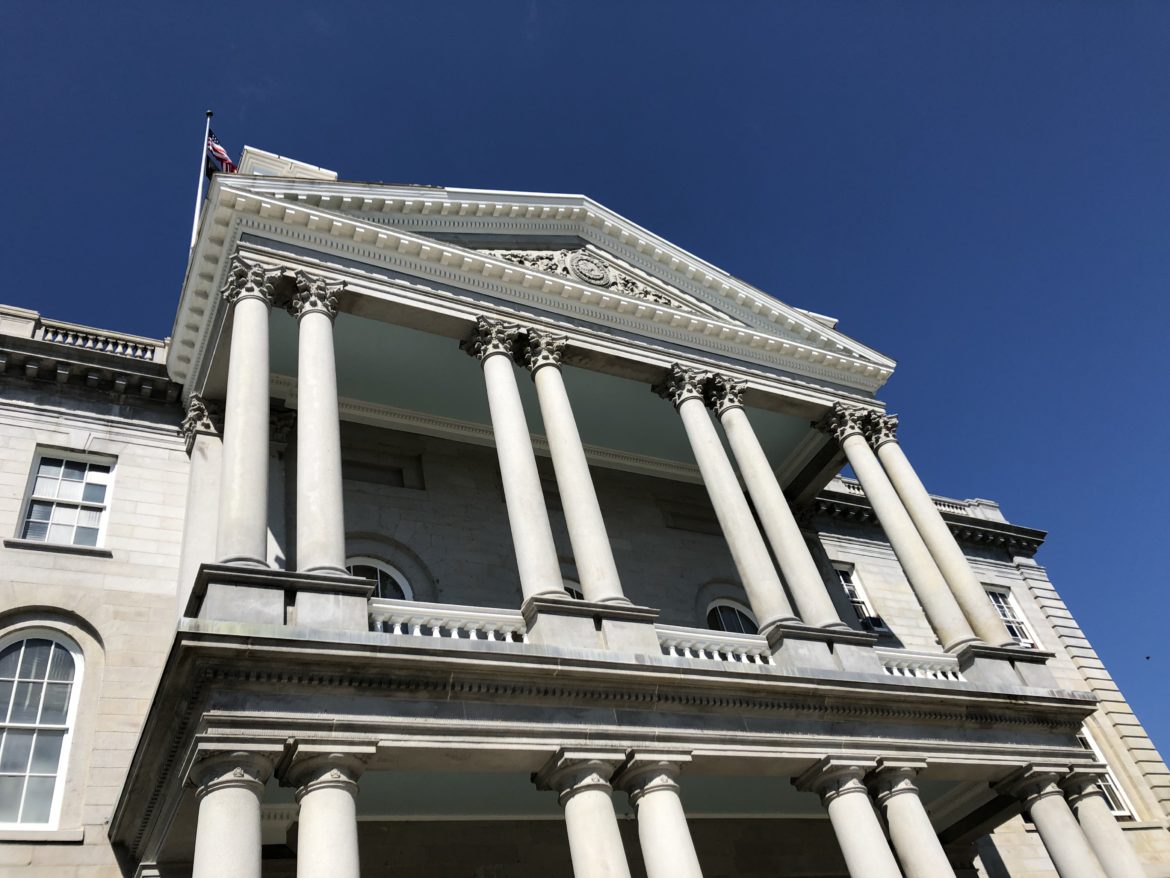By PAULA TRACY
CONCORD – Republican Gov. Chris Sununu received national notoriety in the Wall Street Journal because of his record-setting 55 vetoes.
The headline Sunday was: “New Hampshire’s GOP Governor Goes on Veto Streak.”
“I’m not out to set records, but the Democratic-led legislature has passed just so much extreme legislation,” the governor said in an interview published in the Wall Street Journal.
Sununu told the newspaper he may veto two more bills this year, adding he was proud of the ones he has signed such as the one banning offshore drilling.
Lawmakers return to the State House on Wednesday and Thursday to vote to override the vetoes, although only a couple appear to have a chance.
Sununu crushed the previous record of vetoes held by former Gov. John Lynch, a Democrat. Lynch was dealing with a Republican House, controlled by former House Speaker William L. O’Brien from 2010-12 when the last record of vetoes was set. Over the two-year session, Lynch vetoed a total of 28 bills.
Only about 20 percent of the bills Sununu vetoed were partisan votes with the Democratic-controlled Senate and House passing the measures entirely on party lines.
The other 80 percent had either Republican co-sponsors or bipartisan votes in support of the measures. Two bills the governor vetoed came as requests from his own department heads. They are Senate Bill 218, related to drones and requested by the Department of Transportation. House Bill 292, which was sought by the Insurance Department, is related to brokers’ fees in the calculation of the insurance premium tax.
When lawmakers return Thursday, the Senate will have 26 of their bills to act on first, while the House, which returns on Wednesday and Thursday, will act on their 27 of their bills.
The state Constitution requires that each vetoed bill be taken up for an override vote.
If all 397 sworn members of the House attend, which they probably won’t, it will require 263 votes to override.
The House Speaker has the option to vote but does not usually press the red or green button. House Speaker Steve Shurtleff did press the button once this past session to support abolishing the death penalty.
That override vote passed on May 30 with 25 Republicans in the House supporting the measure and it received a 17-6 override vote in the Senate with three Republican votes.
In the Senate, Democrats, who number 14 of 24, will need at least two Republicans to vote with them to override any vetoes if all attend.
If the House does override a governor’s veto, the bill will be sent to the Senate, and vice versa, on Thursday when the Senate re-convenes.
A lack of votes to override means the bill dies on the floor.
The most likely override chance is for House Bill 183, which provides a subsidy for six biomass plants that make electricity out of low-grade wood.
Another bill that lawmakers say there is chance to override is House Bill 365, or the net energy metering bill.
The action begins on Wednesday at 10 a.m. and will conclude after all the bills have been addressed on Thursday.





